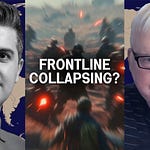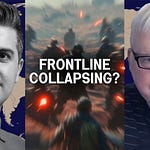Nima Rostami Alkhorshid:
How is Donald Trump’s behavior influencing Arab states, especially regarding Gaza and Egypt’s new plan?
Why did the Trump administration choose Saudi Arabia as the venue for Ukraine talks?
Does Saudi Arabia have leverage or influence over Trump to shape his policies?
Can we be optimistic about the ceasefire in Gaza and its phases?
What is the situation in southern Lebanon, and will Hezbollah resume clashes with Israel after Nasrallah’s funeral?
How is Donald Trump dealing with Zelensky, and what does it signify?
What are your thoughts on the talks between U.S. and Russian delegations in Saudi Arabia?
Why haven’t European countries proposed a peace initiative for Ukraine?
How effective are Macron’s summits in addressing Europe’s role in the conflict?
Are Europeans capable of managing their policies without U.S. involvement?
What is the role of the British government in Europe’s independence?
How do you assess the positives and negatives of the Trump administration so far?
Amb. Chas Freeman:
Trump’s approach alarms Middle Eastern nations except Israel. His Gaza proposal aligns with Israeli goals and real estate interests, which Arab states reject.
Saudi Arabia was chosen for Ukraine talks due to its neutrality and desire to assert itself as a diplomatic player amid shifting global power dynamics.
Saudi Arabia has historical ties with Trump, particularly through Jared Kushner, giving it some influence, though limited.
There’s no ground for optimism in Gaza due to Netanyahu’s intentions and repeated Israeli ceasefire violations.
Southern Lebanon remains tense, with Israel’s refusal to withdraw likely sparking further clashes after Nasrallah’s funeral.
Trump is upset with Zelensky for rejecting a mineral rights deal and views him as illegitimate, partly due to personal grievances and geopolitical shifts.
The talks in Saudi Arabia were professional, focusing on Ukraine’s status, Russian speakers’ rights, and broader U.S.-Russia peace prospects.
Europe lacks unity and strategic vision, leaving it unable to propose a coherent peace plan for Ukraine.
Macron’s summits highlight European disarray, with key nations divided on military involvement and policy direction.
Europeans struggle to manage independently due to decades of reliance on U.S. leadership, but they must learn quickly.
Britain, post-Brexit, weakens Europe and prioritizes its "special relationship" with the U.S., often ineffectively.
Trump’s administration disrupts existing systems, creating uncertainty but potentially necessary change, while exposing global tensions.










